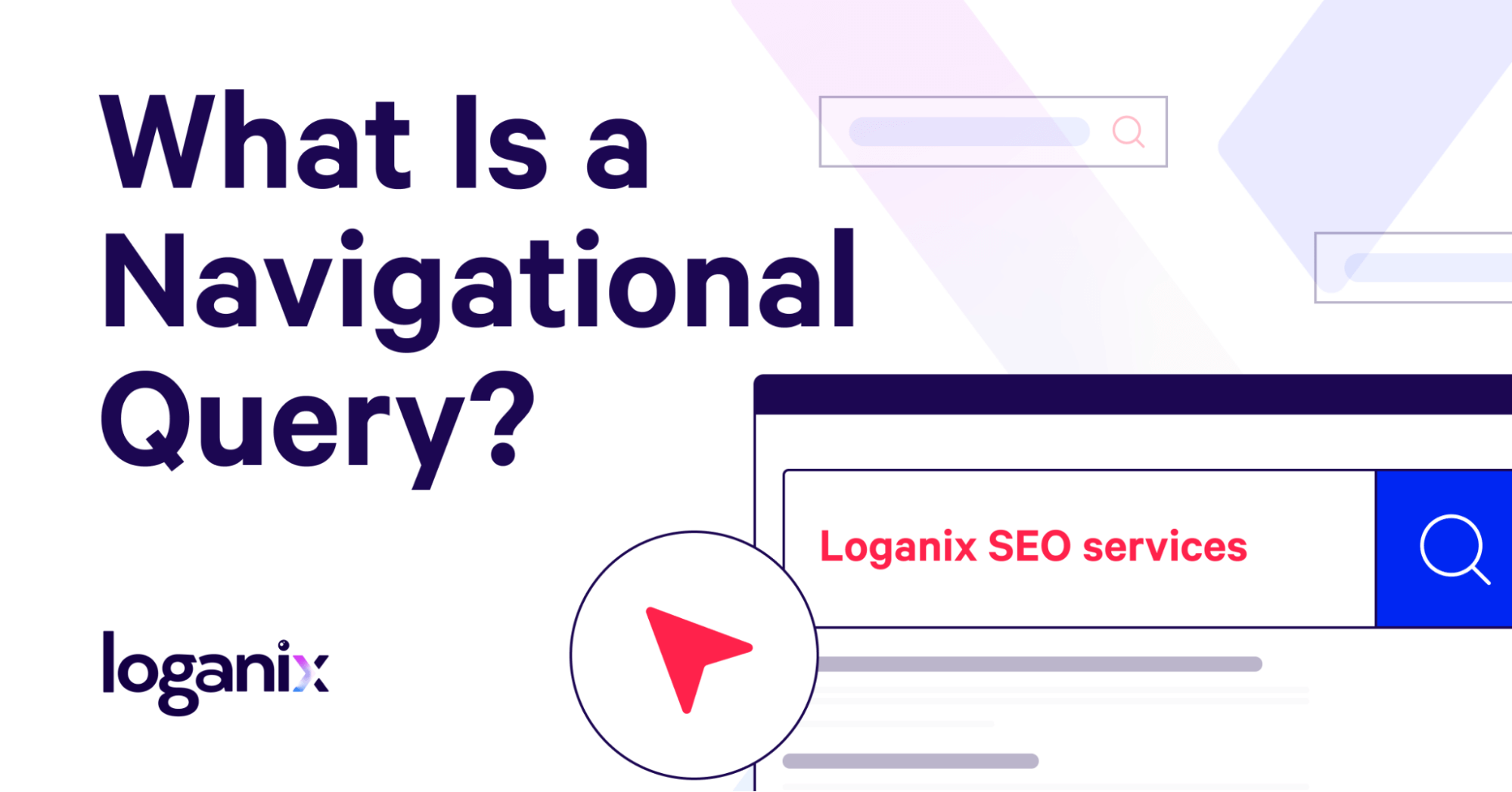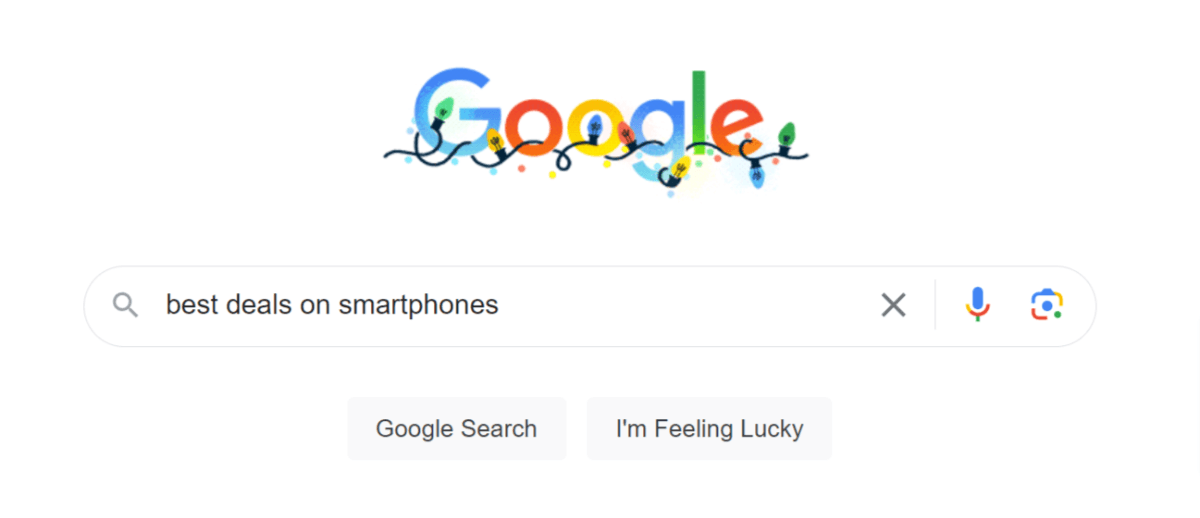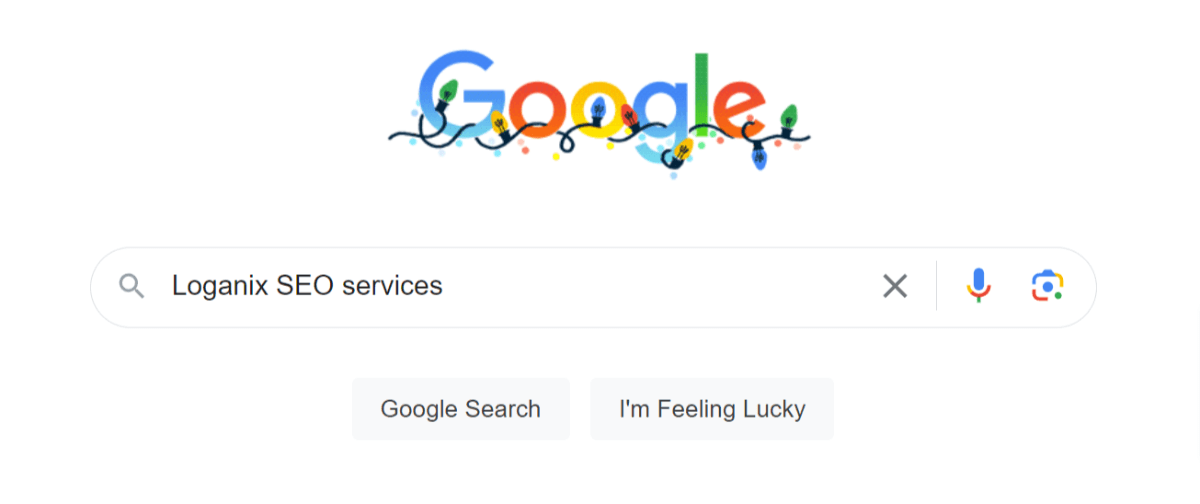What Is a Navigational Query? Search Queries & Intent Explained

Hand off the toughest tasks in SEO, PPC, and content without compromising quality
Explore ServicesHave you ever found yourself using Google to search, not from a place of curiosity but with a specific destination in mind—maybe for a particular brand or website?
If so, my friend, you’ve already rubbed shoulders with navigational queries—key players in content marketing and search engine optimization (SEO) and the very topic we will tackle today.
Fasten your seatbelts because we’re about to jump into
- a zero jargon answer to the question, “What is a navigational query,”
- the role of navigational queries in sculpting cost-effective SEO strategies,
- and some straightforward, no-BS answers to your most pressing navigational query questions.
What Is a Navigational Query?
Navigational search queries reflect a specific type of user intent, typically occurring when a searcher knows their desired online destination but not a web page’s exact URL. The motivation behind these types of queries is less about discovering new information and more about directly reaching a particular brand, online location, or website.
Learn more: Interested in broadening your SEO knowledge even further? Check out our SEO glossary, where we’ve explained over 250+ terms.
Navigational Search Query Real-World Example 👇
To bring the concept of navigational search queries to life, let’s consider a common scenario. Imagine you want to check your emails on Gmail. Instead of typing the full URL, you simply enter “Gmail” into Google search.
Here, your intent isn’t to learn about Gmail or find guides on email management. Instead, you have a specific destination in mind—to be directed to the Gmail login page.

This everyday scenario is a classic example of a navigational query—search intent that’s less about discovery and more about efficient and direct access to a pre-known online location.
Understanding Different Types of Search Queries
Before we move on, let’s take a moment to understand the landscape of search queries. Broadly, search queries can be categorized into three main types: informational, transactional, and, the topic we’re covering, navigational. Each type represents a different user intent and plays a unique role in SEO strategies.
1. Informational Queries: The Quest for Knowledge
- These are queries where users are primarily looking for information or answers to questions.
- Examples include searches like “how to tie a bowtie” or “what is blockchain technology.”

2. Transactional Queries: Ready to Take Action
- Transactional queries indicate a user’s intent to complete an action, such as making a purchase.
- Examples include “buy Nike running shoes” or “best deals on smartphones.”

Learn more: buyer intent keywords.
3. Navigational Queries: Directing to a Specific Destination
- This brings us back to navigational queries, where the user aims to find a specific website or page.
- As previously discussed, examples include searching for “Gmail,” or maybe you’re on the search for us, so “Loganix SEO services” is your go-to search term.

Why Is a Navigational Query Important?
Now that you’ve got a handle on what a navigational query is, let’s dive into why it’s a big deal in the world of SEO and digital marketing.
Why Navigational Queries Is Important to SEO
When users search for a website using specific branded or exact match keywords—in this context, referred to as navigational keywords—it sends a clear message to search engines about the site’s value and authority. The payoff? In the eyes of search engines, these unmistakable signals can elevate a website’s credibility, potentially boosting search rankings. The more users directly search for and visit a site, the more search engines recognize it as a go-to, authoritative destination.
Why Navigational Queries Is Important to Brand Recognition
Each navigational query is a testament to your brand’s recognition—particularly when displayed on a search engine like Google—one of the world’s most trusted brands. When users search for your brand or website by name, it indicates a level of awareness and familiarity. What does this mean? Your marketing efforts are resonating, and your brand is top-of-mind for consumers. In the long run, strong brand recognition can lead to increased trust, higher conversion rates, and even word-of-mouth referrals—nice!
Optimizing for Navigational Queries

At this stage, you might be asking yourself, “Okay, Loganix, how do I optimize my website’s SEO content for navigational search queries?”
If this thought has popped into your head, 1) pat yourself on the back ‘cause you’re thinking like a marketer, and 2) I have excellent news for you.
Optimizing your site for these types of queries is simpler than it seems.
Your brand name will naturally be peppered throughout your domain’s URL and consistently appear within your content and sales copy. With this, your site will organically begin ranking for what is known as branded keywords—a search term that includes a brand or product name—meaning optimization for navigational queries is often not required.
However, do keep in mind how unique your brand name is—if it’s similar to a competitor’s brand name, you might have to revisit optimizing for navigational queries. In general, though, effectively using and positioning your brand name within the digital space, like on your blog, in social media bios, and within online forums such as Reddit, can work wonders with minimal optimization efforts on your part.
Navigational Query FAQ
Q1: How Do Navigational Queries Impact Local SEO?
Answer: When folks use a navigational query to find a business by its name, it’s a shout-out to search engines that this particular business is a big deal locally. This can give the business a nice little lift in local search rankings.
Q2: Can Navigational Queries Lead to Higher Conversion Rates?
Answer: Navigational queries often demonstrate transactional intent, meaning the work on your end is half done. Usually, this results in better conversion rates because potential customers are often ready to take action, like buying a product or getting in touch with your business.
Q3: How Can Small Businesses Compete with Larger Brands in Navigational Queries?
Answer: You can definitely give large brands a run for their money when it comes to navigational queries. How? Well, 1) start by creating a strong local presence and a distinct brand identity that sets you apart, 2) concentrate on developing unique branding and local SEO tactics, and 3) don’t forget to encourage your customers to leave reviews—this can really help boost your visibility in navigational searches.
Conclusion and Next Steps
Each search query type—remember, informational, transactional, and, of course, navigational—requires a nuanced approach tailored to match the specific intent of your audience.
That’s where Loganix steps up as your experienced partner.
Whether fine-tuning your site to capture more navigational queries, crafting content that answers your audience’s informational queries, or optimizing your pages for those all-important transactional queries, we have the tools and expertise to help you succeed.
🚀 Visit Loganix’s SEO services page to discover how our tailored solutions will help your website not just match but exceed your expectations. 🚀
Hand off the toughest tasks in SEO, PPC, and content without compromising quality
Explore ServicesWritten by Aaron Haynes on January 12, 2024
CEO and partner at Loganix, I believe in taking what you do best and sharing it with the world in the most transparent and powerful way possible. If I am not running the business, I am neck deep in client SEO.





